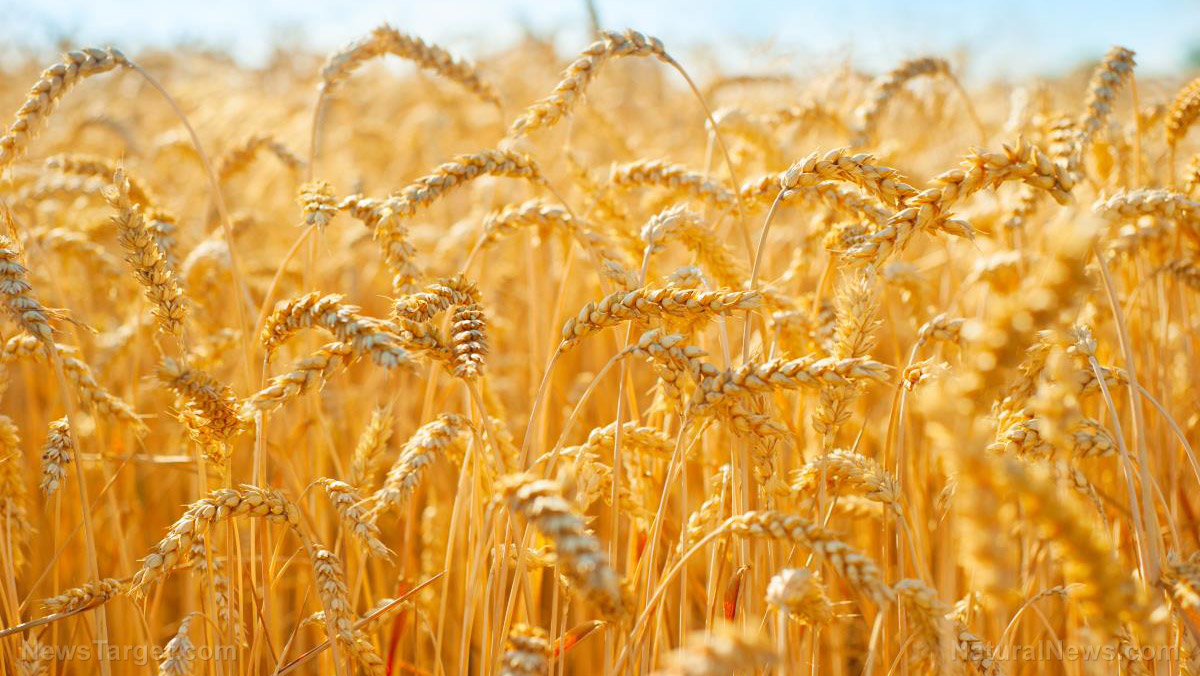A more diverse farm land provides better conditions for pest control
04/30/2018 / By Janine Acero

Crop diversity was shown to have a positive impact on the natural predators of aphids, which are common crop pests. Farmers can utilize this insight to keep aphids at bay and reduce the need for pesticides. In addition, greater crop diversity in agricultural landscapes is said to be better for pest control because a varied landscape provides better living conditions for the aphids’ natural enemies to thrive in than endless fields of monocultures. This effect is more evident the more diverse the landscape is in a 500 m radius around the field, explained Sarah Redlich, an ecologist and a Ph.D. student at the University of Würzburg in Bavaria, Germany.
The study, published in the Journal of Applied Ecology, reported that there were 18 landscapes in the greater Würzburg area that exhibited maximum crop diversity. The landscapes were 6 km in diameter, and each had a winter wheat field at its center. “We chose fields in low-diversity landscapes and fields with high landscape-level crop diversity,” Redlich explains.
Redlich set up two cages each containing 100 aphids on each winter wheat field. One of the cages was designed to keep out all predators to see how quickly the aphids reproduce in this setting. The other cage was coarse meshed, which kept birds away, but not other enemies. Redlich aimed to determine the influence birds have on regulating the aphid population in wheat. Redlich separated another area that was fully accessible to all predators and put 100 aphids there. “I let nature take its course here,” she explained.

She compared the aphid population and their predators at five-day intervals for around two weeks. After this time, she examined the aphids’ population development in the environments with enemies with that in predator-free cages. She found that fewer aphids thrived on the wheat plants in the varied landscape around the wheat field and that birds proved to be irrelevant as natural enemies of aphids on wheat in the cropping system under analysis. Farmers can benefit from this finding by increasing their crop diversity which may reduce the need to use pesticides that also damage the natural enemies. In addition, the farmers are to decide which crops to grow and cooperate with their neighbors on which crops to cultivate, for better plant diversity. (Related: Working with nature to reduce pesticide use: Farmers around the world are rediscovering the increased yields offered by biodiversity.)
This could also help farmers implement a regulation of the EU Common Agricultural Policy which stipulates that a greater crop diversity must be grown within the scope of “greening” efforts. The farmers may need to cultivate crops that are more diverse in structure and food availability. The regulation has been in force since 2014. This would require the farmers to create a variety of fields around a field of winter wheat to establish a mix of plants in the landscape that sustains as many natural enemies of aphids or other insect pests as possible throughout the season.
Another study found that crop diversity and varying nutrient levels play a role in attracting or deterring plant-eating insects. “Farm fields can create monocultures where pests may find the perfect nutrition to be healthy and reproduce,” said William Wetzel, a Michigan State University entomologist and the lead author of the study published in Nature. “Planting fields with higher plant nutrient variability could contribute to sustainable pest control.”
Head over to Harvest.news to learn more about the benefits of crop diversity in agricultural landscapes.
Sources include:
Submit a correction >>
Tagged Under:
This article may contain statements that reflect the opinion of the author





















